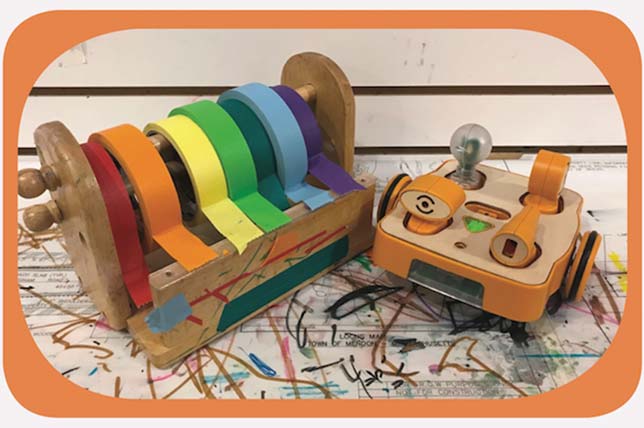KinderLab Launches Curriculum Guide for Self-Directed Robotics Activities

KinderLab Robotics, maker of the KIBO robotics kit, has released a curriculum guide that provides lesson plans for student self-directed activities that can take place in a makerspace or other school activity center.
KIBO kits are designed for younger students, aged 4–7, and provide the components necessary to allow them to "build, program, decorate and bring their own robot to life" without the need for a computer or mobile device. There are four core kits available; two of those kits are available in classroom packages for up to 24 students and include curriculum and teacher materials.
The new curriculum guide includes three activity lesson plans:
- KIBO Bowling;
- KIBO Dance Party;
- KIBO Shape Search.
Each focuses on a different aspect of STEAM education. Dance Party, for example, includes art, coding and music. Bowling uses math. Shape search uses drawing and geometry.
The guide runs $30 but is included free with the purchase of two or more kits if purchased by Sept. 30. Current customers receive 20 percent off through Sept. 30.